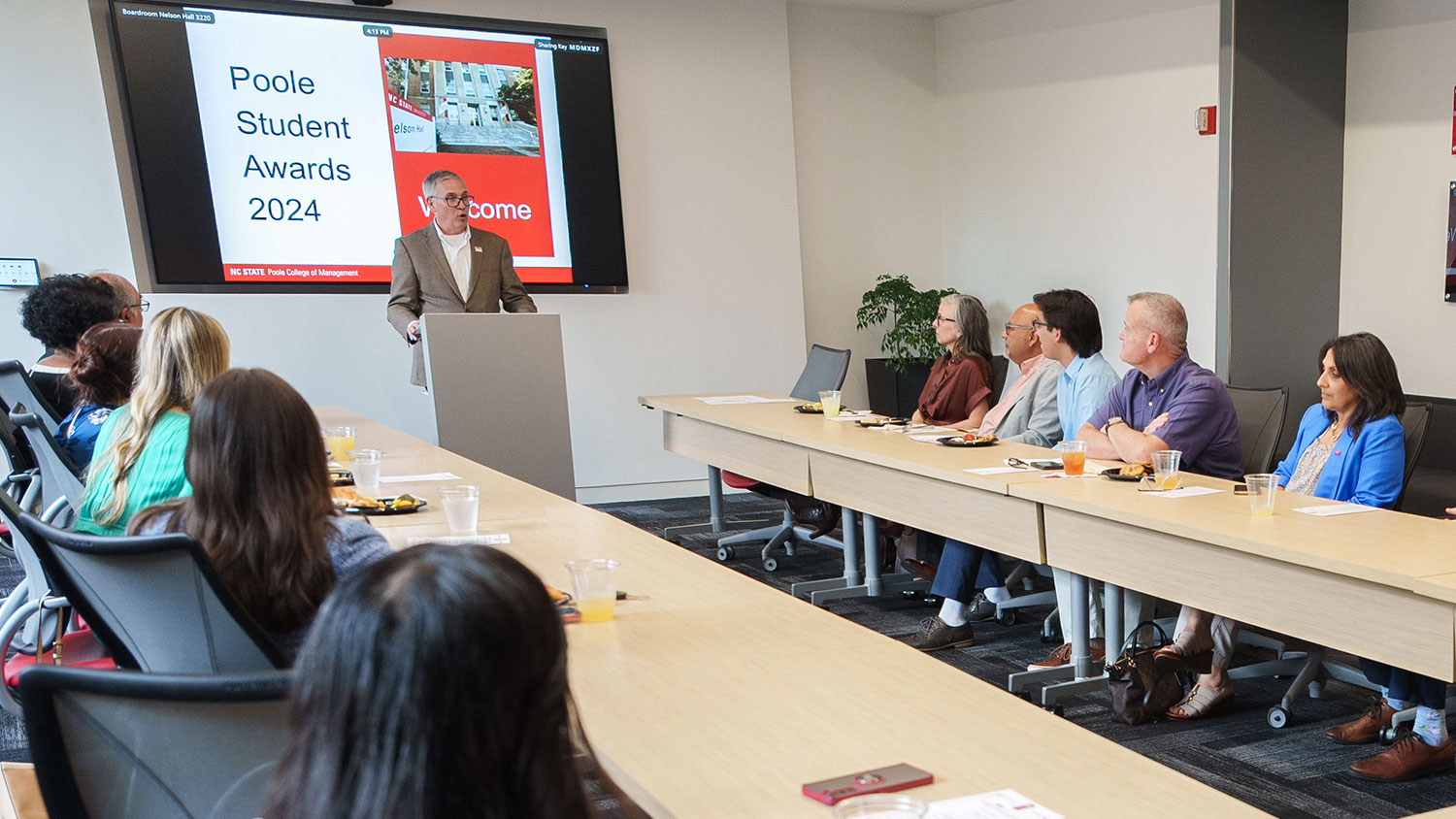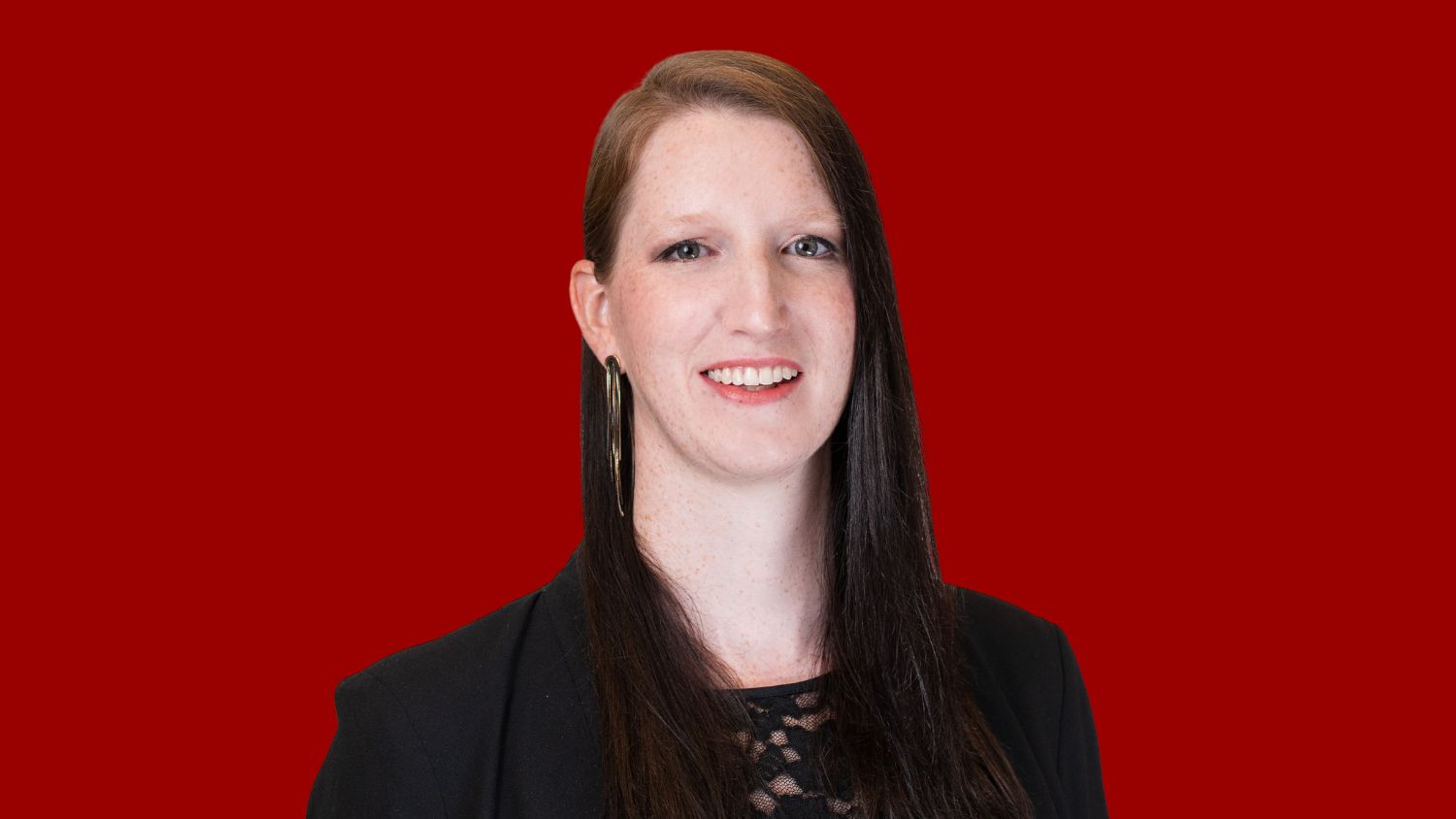Few would have predicted the challenges that disrupted the economy in 2020: a global pandemic, a once-in-a-century economic crisis and, in the U.S., widespread demonstrations over racial justice.
Ericka Kranitz, an accounting lecturer at the Poole College of Management, says that enterprise risk management (ERM), while it can’t predict all the challenges a business might face, provides a process and systems to help companies better prepare for the unexpected.
“ERM gives you the mindset to be strategic and think ahead about ‘OK, here’s what I’m in business to do, and here’s what could go wrong,’” Kranitz says. “The pandemic impacted every aspect of every business, from human resources to marketing to supply chain.”
Organizations that have some level of ERM practices are better equipped to handle crises and unexpected activities of all sorts — from unusual events like a global pandemic, to more predictable disruptions, such as hurricanes and cyberattacks.
Kranitz incorporates her career experiences and current business events into the classroom to provide students hands on and practical experiences that help them understand how ERM principles are applied in today’s business environment.
Though professionals with other backgrounds may be involved in ERM, those with an accounting background are particularly well suited to it, Kranitz says.
Accounting is the “language of business,” and accountants have a deep understanding of how a business operates, the challenges it faces and what it takes to makes a profit. That positions them well to contribute to evaluating potential risks across the entire organization that could have an impact on being successful.
“Students may not fully appreciate the value of majoring in accounting and getting your master’s,” she says. “The knowledge and skills gained are important for today’s business, regardless of the industry or role. You have a better appreciation of, ‘What’s the worst thing that could happen?’ You start thinking about potential risks and also missed opportunities a company may want to consider.
The knowledge and skills gained are important for today’s business, regardless of the industry or role.
Kranitz says she’s only had one “true” accounting job, Securities and Exchange Commission consolidation and reporting, but her wide range of experience in corporate and university internal audit and risk management, illustrates the variety of career choices available to accountants.
During her corporate career she frequently traveled to Europe and Latin America, managing internal auditing projects for companies in the pharmaceutical and food industries.
“I enjoyed it because I got to learn so much about all aspects of the business as well as gain an appreciation for the culture,” she says. “I was able to work internationally. I spent a lot of time over in Europe doing internal audits.”
In 1999, she joined NC State as director of internal audit, a role in which she implemented enterprise-wide risk assessments, among other accomplishments. Between the NC State job, and then later roles at other large universities, she also returned to teaching part-time — something she had enjoyed in graduate school early in her career.
“From then to now, I’ve had two parallel careers,” Kranitz says. In her professional life she’s focused on internal audit, compliance and related matters. In her academic career, she’s taught everything from introductory financial accounting to courses in government and nonprofit accounting, and, most recently, enterprise risk management.
“I’ve just always loved teaching and I love working with students,” she says. “I feel lucky I get to know most of my students one-on-one.”
I feel lucky I get to know most of my students one-on-one.
In the last couple of years she has helped facilitate practicum opportunities for graduate accounting students, where they work with an organization to address an ERM-related challenge.
“They do a thorough analysis of the business, including interviews of management, and give them an in-depth research report from what they’ve learned and recommendations,” she says.
Kranitz says her professional experience adds an extra dimension to how she teaches.
“I’ve been able to bring my real-world experiences into the classroom and give students perspective,” she says. “Instead of just regurgitating a bunch of concepts, it’s like ‘Here’s why it’s important. Here’s why you care. Here’s what it means. Here’s how they really do it.’”
That approach builds relationships with students that often outlast the semester, or even the length of a degree program.
“I tell them, ‘Once you’re a student of mine, you’re always a student of mine,’” she says. “I encourage them — ‘Reach out to me anytime, I’m always there to help.’”



